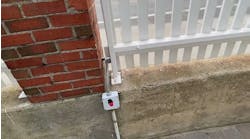While NFPA 70E is not a rules-based system per se, it does contain rules. Not all of them carry the same weight, however.
Some carry the kind of weight you think of when thinking of rules. They are mandatory. These rules identify actions that are specifically required or specifically prohibited [90.5(A)]. An example is this rule:
“Equipment safeguards for employee protection shall be tested to ensure they are in a safe working condition” [310.15(D)(12)]. Notice the word “shall” in that rule.
The other kind of rule is the permissive rule. These are rules that identify actions that are allowed but not required. These also have the word “shall” but in one of two longer phrases: “shall be permitted” or “shall not be required.” These occur at a far lower frequency than the mandatory rules, but an example is:
“Electrical lockout/tagout devices shall be permitted to similar to lockout/tagout devices for control of other energy sources, such as pneumatic, hydraulic, thermal, and mechanical, if such devices are used only for control of hazardous energy and for no other purpose" [120.2(D)(3)(d)].
And always keep in mind that rules alone don’t protect you. Your awareness and discipline are key [110.1(C)].




